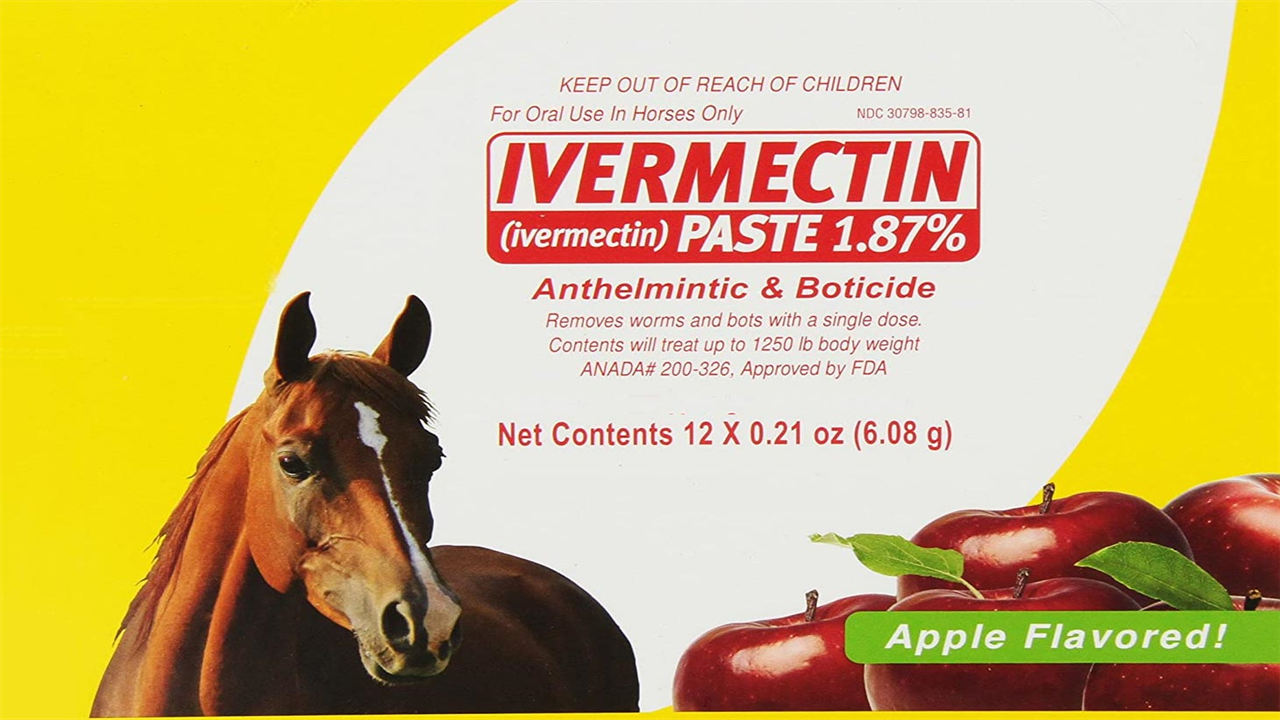Can People Take a Drug for Horses and Cows To Treat a Deadly Virus?
0 View
Share this Video
- Publish Date:
- 6 September, 2021
- Category:
- Covid
- Video License
- Standard License
- Imported From:
- Youtube
Tags

Demand for ivermectin, a drug widely given to horses and cows to treat worms and other parasitic infections, has skyrocketed as a potential treatment or preventative for COVID-19. Some seekers have turned to over-the-counter animal formulations despite Food and Drug Administration warnings against their use, resulting in a spike in calls to poison centers. dr. Jim Lowe, professor of veterinary clinical medicine at the University of Illinois Urbana-Champaign and expert on infectious diseases and farm animals, spoke with News Bureau editor of biomedical sciences Liz Ahlberg Touchstone about ivermectin, the differences between forms intended for animals. and the approved prescription for humans, and the risks of accidental overdose.
What is ivermectin? What does it treat?
Ivermectin is a parasiticide, meaning it kills parasites. It is a very broad spectrum parasiticide that can treat internal parasites, such as worms, or applied topically to treat scabies or lice. It was first used to treat heartworms in dogs and now has wide application in the animal world, being used extensively in horses and food animals such as cows and pigs. It is also used in humans, primarily to treat river blindness, a parasitic infection of the eye in tropical parts of the world.
As you mentioned, ivermectin is available on prescription for humans. However, ivermectin intended for animals is widely available. How do the animal shapes differ?
The active ingredient of ivermectin is the same in all forms. The differences are in the formulation and how it is delivered. The prescription for humans is generally a tablet that is swallowed. Animal products come in different forms. For example, the product we use on cattle and pigs is injectable and the wormer used on horses is a concentrated paste. These usually come in fairly large doses, compared to a single human tablet. We certainly don’t want people taking any kind of animal medicine.
Taking large or multiple doses of the antiparasitic drug ivermectin can cause a toxic overdose, and humans should not take forms intended for animal use, says Dr. Jim Lowe, a veterinary medicine expert from Illinois. Credit: Photo by Greg Boozell
Does ivermectin have both antiviral and antiparasitic properties?
All the drug compounds we use are foreign chemicals, and they all do more than what they’re intended to do, so in theory it could have an antiviral effect. However, we see no evidence that it is clinically valuable as an antiviral agent, as we do not see direct effects on viruses as we would with other antiviral drugs, such as those used to treat flu.
Is there a problem with taking any form of ivermectin as a prevention or treatment for COVID-19?
The challenge is toxicity. Toxicity can come from taking too much in a single dose, but the bigger problem is the cumulative dosing when taking the drug for several days in a row. Ivermectin is labeled for a single use dosage in both humans and animals. Whether you’re treating a person for river blindness or a horse for worms, it’s meant to be given once and not multiple times. It remains active in the body for a long time. If someone takes ivermectin day after day or week after week, as with an antiviral drug or antibiotic, the dosage in the body becomes toxic. Even with the human form, if a person takes one dose for 10 days in a row, he will get 10 times the recommended dose, which can certainly cause toxic effects and overdose.
What are some of the possible side effects of taking too much ivermectin?
There have not been many studies of overdose in humans, but in animals we do know that when there is accidental multiple dosing or overdose, it can be neurotoxic and cause neurological effects such as seizures and blindness. The FDA has warned that it can cause gastrointestinal symptoms as well as neurological symptoms and may interact with other medications.
If someone has ivermectin and wants to throw it away, what should they do?
Drug disposal is state-regulated, so check your state’s recommended approach. In Illinois, the recommended way to dispose of medication is to take it out of the container, mix it with something inedible like sand or cat litter, put it in a sealed container, and throw it in the trash. Do not throw it down the drain or toilet. Some pharmacies also have a drug depot.










